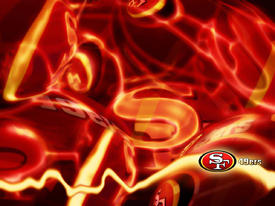We are pleased to announce that on March 4, 2025, an updated Rich Text Editor will be introduced in the MyFitnessPal Community. To learn more about the upcoming changes, please click here. We look forward to sharing this new feature with you!
FOODS THAT STORE BELLY FAT.

EthanJeremiahsMama
Posts: 534 Member
Hi MFP. So today I heard from a friend that actually "whole wheat/grain bread" can increase belly fat? I looked at her a bit crazy, because I do eat whole sprouted grain bread everyday.. (ezekiel low sodium) and I also like to include organic brown rice (trader joes) in my dinner sometimes.
Is this true? What foods should I avoid.. I know bad carbs such as white bread/pasta/rice.. but I have completely switched to whole grains / wheat bread / brown rice.. and I actually just bought Bob Mill's Flax Seed Meal to add to my food.
I'm a bit worried lol. As far as oatmeal, I eat Quaker Oats "Weight Control Maple & Brown Sugar" which has 1g of sugar in each packet.
I try to eat healthy fats such as almond butter everyday and SOMETIMES I do eat organic peanut butter.
I'd love some tips... from anyone. Thanks!
Is this true? What foods should I avoid.. I know bad carbs such as white bread/pasta/rice.. but I have completely switched to whole grains / wheat bread / brown rice.. and I actually just bought Bob Mill's Flax Seed Meal to add to my food.
I'm a bit worried lol. As far as oatmeal, I eat Quaker Oats "Weight Control Maple & Brown Sugar" which has 1g of sugar in each packet.
I try to eat healthy fats such as almond butter everyday and SOMETIMES I do eat organic peanut butter.
I'd love some tips... from anyone. Thanks!
0
Replies
-
From the reading and research I have been doing over the past 2 years - I agree with your friend.............
However, there are going to be numerous posts that disagree with me so I am going to leave my comment as stated above.
Please message me if you would like to discuss further.0 -
Everything I've read indicates whole grains reduce belly fat. I would ask your friend for a source.0
-
I read an article the other day that supported your friends theory.. I always thought the opposite myself..lol0
-
0_o
There's no such thing as a food that stores fat. Food doesn't store anything.
Your body stores things in different ways but as long as you eat fairly clean, you are in a calorie deficit and eating a balanced diet you are going to lose weight.0 -
there is no certain food that increases fat. caloric surpluses increase fat0
-
This.0_o
There's no such thing as a food that stores fat. Food doesn't store anything.
Your body stores things in different ways but as long as you eat fairly clean, you are in a calorie deficit and eating a balanced diet you are going to lose weight.
A lot.0 -
i know what youre thinking!! i bet you think you have to delete ALL of your whole grains from your diet because of this lol. this is NOT the case, rest assured.
you made a good choice choosing only whole grains. your friend is a little silly when she says that whole grains increase belly fat, because the opposite is true. whole grains actually help REDUCE belly fat, WHILE preventing the risk of heart disease. theres a study proving it here (http://www.webmd.com/heart-disease/news/20080225/whole-grains-fight-belly-fat). while whole grains take longer to digest (making you feel FULLER LONGER!) than regular grains, it is proven to not increase belly fat. so dont worry
keep in mind, though, `multi grain` or `100% wheat` does NOT necessarily mean that product is a whole grain product.0 -
i know what youre thinking!! i bet you think you have to delete ALL of your whole grains from your diet because of this lol. this is NOT the case, rest assured.
you made a good choice choosing only whole grains. your friend is a little silly when she says that whole grains increase belly fat, because the opposite is true. whole grains actually help REDUCE belly fat, WHILE preventing the risk of heart disease. theres a study proving it here (http://www.webmd.com/heart-disease/news/20080225/whole-grains-fight-belly-fat). while whole grains take longer to digest (making you feel FULLER LONGER!) than regular grains, it is proven to not increase belly fat. so dont worry
keep in mind, though, `multi grain` or `100% wheat` does NOT necessarily mean that product is a whole grain product.
Thankyou so much for this info! 0
0 -
things like this go back and forth every year, heck every six months.
is whole grain better? yes, no, yes.
is corn syrup the same as sugar in regulated portions? no, yes, no.
is artificial sweetener bad? yes, no, yes.
and so on.
in moderation it probably won't induce a pot belly on you... sooo i'd say just eat as you like.0 -
Everything I've read indicates whole grains reduce belly fat. I would ask your friend for a source.
A reliable, peer reviewed source, not some pushy website about the advantages of particular dietary practices.....0 -
Your GENETICS is what will tell you where fat is stored. If you surplus excess calories, fat storage has already been predetermined by your body.0
-
Not sure where your friend is getting their info, but my nutritionist/father says complex carbs (which would include whole grains like steel cut oatmeal, quinoa, and other genuinely whole grain foods) are needed to burn fat, and has me eating my oatmeal before my midday workout for that reason. As said above though, a lot of foods labeled "100% whole grain" aren't really complex carbs, so you do have to be careful. The less process a food is, the better/more complex it is. So instead of eating your instant quaker oatmeal, you'd be better off cooking a batch of steel cut oatmeal, putting the extra 3/4 batch in the fridge and just nuking it on subsequent days. I add agave syrup (better glycemic index than sugar, real or fake) and cinnamon and that makes it entirely edible.

Edit: I should specify that I'm talking about fat in general and good foods, not specifically about belly fat. Belly fat is influences by certain hormones and not really by what you eat. Now *bloating* would be influenced a LOT by *what* you eat.0 -
Your GENETICS is what will tell you where fat is stored. If you surplus excess calories, fat storage has already been predetermined by your body.
This to. Just the same as you can't lose weight from specific areas because your body loses fat from where it wants so to speak, it will also store fat where it wants regardless off what you eat.0 -
In the American Journal of Clinical Nutrition, researchers at Penn State compared 25 obese adults eating whole grains vs. 25 obese adults eating refined grains, for 12 weeks. Both groups lost the same amount of weight (an average of eight to 11 pounds), but the whole-grain eaters lost double the fat in the belly area.
But it comes down more to genetics - that is what determines where your fat is stored and where your body draws from first with losing fat.0 -
I watched Dr Oz the other day and he was talking about this topic.
Foods to eat to reduce belly fat are:
monounsaturated fats, easily remembered as MUFAS, found in nuts, olive oil and seeds
Avocados
Whole Grains
Green Tea
Foods to avoid:
enriched flours
Packaged foods
hydrogenated oils
and avoid Trans fats
Estrogen, cortisol and all these other hormones are also contenders when it comes to belly fat.0 -
In the American Journal of Clinical Nutrition, researchers at Penn State compared 25 obese adults eating whole grains vs. 25 obese adults eating refined grains, for 12 weeks. Both groups lost the same amount of weight (an average of eight to 11 pounds), but the whole-grain eaters lost double the fat in the belly area.
But it comes down more to genetics - that is what determines where your fat is stored and where your body draws from first with losing fat.
Thank you. . Love well researched info. . You are awesome!0 -
Whole grain carbs are still carbs and according to the glycemic index they have about the same effect on your blood sugar/insulin spike as many white carbs.
Source:
http://www.glycemicindex.com/
The higher the GI value, the greater the impact a particular food has on your blood sugar/insulin levels. The lower the GI value, the less impact on your blood sugar/insulin levels.
Peanuts have a GI value of 13.
Sucrose (common table sugar) has a GI value of 65.
Whole Wheat bread has a GI value of 68-77 depending on the brand -- not all brands are represented in the above database, but I'm sure there are other sources online that might list your brand. Even so, it is easy to see that most whole wheat breads will fall into this range.
In other words, whole wheat bread actually has a higher GI value than sugar. I've read this in multiple sources and I'm sure that you can find these facts on more than one website.
So while you do get fiber, etc from whole grain carbs, they still increase your blood sugar, cause your body to release insulin, and the hormone insulin actually promotes fat storage, particularly around the midsection.
Of course, it also depends on the person and his or her body type. If a person is significantly overweight, they may already have some issues with insulin resistance. If that is the case, then they will likely have more problems with all carbs including whole grains, as I do. If a person is fit and thin, then most likely they don't have existing issues with blood sugar or insulin levels, unless they are diabetic. While whole grains are better than refined, diabetics still have to limit their whole grains as well because they are still carbs and will still cause blood sugar spikes, etc.
Additional Sources:
http://www.health.harvard.edu/newsweek/Glycemic_index_and_glycemic_load_for_100_foods.htm
Some examples from Harvard's GI Reference:
Whole Wheat bread - average GI value: 71
Wonder bread (white) - 73
Coca-Cola: 58
Oatmeal - average: 58
Raisin Bran: 61
Grapenuts: 71
White Rice: 64
Brown Rice: 550 -
Thanks for sharing this article! All of it was enlightening, but I especially appreciate the table of fruits with their fructose values and this section of the article:
"Your consumption of carbohydrates, whether in the form of grains (including whole grains) and sugars (especially fructose), will determine whether or not you're able to manage your weight and maintain optimal health. Cutting out or severely limiting grain carbs and sugars can be the U-turn you've been looking for if you are currently overweight and/or your health is suffering.
This is because these types of carbs (fructose and grains) affect the hormone insulin, which is a very potent fat regulator. Fats and proteins affect insulin to a far lesser degree.
Dr. Robert Lustig, an expert on the metabolic fate of sugar, explains that fructose is 'isocaloric but not isometabolic."
This means you can have the same amount of calories from fructose or glucose, fructose and protein, or fructose and fat, but the metabolic effect will be entirely different despite the identical calorie count. This is a crucial point that must be understood. Fructose is in fact far worse than other carbs because the vast majority of it converts directly to FAT, both in your fatty tissues, and in your liver. And this is why counting calories does not work... As long as you keep eating fructose and grains, you're programming your body to create and store fat."0 -
Whole grain carbs are still carbs and according to the glycemic index they have about the same effect on your blood sugar/insulin spike as many white carbs.
and the GI index has little or no real world relevance, unless you are consuming said foods isocalorically and after a long fast0 -
I really watch for high fructos corn syrup in my foods now. From the research I have done, this is worse for you than regular sugar. And they put it in everything now. I have read this may be the cause of skinny teen girls who have a pooch. And really watch whole grain stuff, really read the lables, often they really aren't whole grain or 100% wheat. Just my thoughts.
 0
0
This discussion has been closed.
Categories
- All Categories
- 1.4M Health, Wellness and Goals
- 391.4K Introduce Yourself
- 44K Getting Started
- 260.4K Health and Weight Loss
- 176.1K Food and Nutrition
- 47.5K Recipes
- 232.3K Fitness and Exercise
- 388 Sleep, Mindfulness and Overall Wellness
- 6.4K Goal: Maintaining Weight
- 8.6K Goal: Gaining Weight and Body Building
- 153.1K Motivation and Support
- 8.1K Challenges
- 1.3K Debate Club
- 96.2K Chit-Chat
- 2.5K Fun and Games
- 3.2K MyFitnessPal Information
- 22 News and Announcements
- 1.2K Feature Suggestions and Ideas
- 2.3K MyFitnessPal Tech Support Questions














